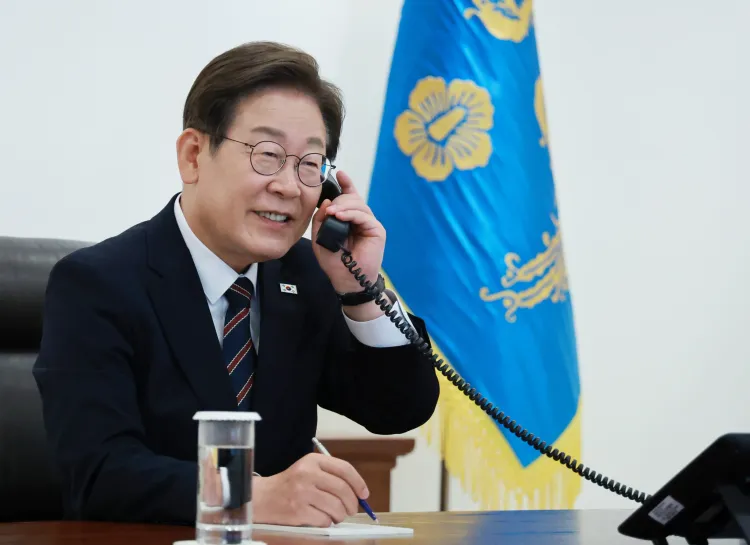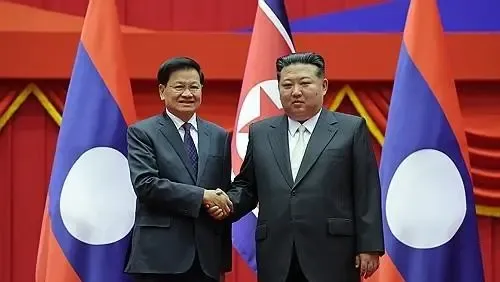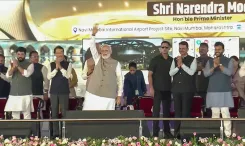Will Lee's Call for Unity Between South Korea and Japan Foster a Brighter Future?

Synopsis
Key Takeaways
- Collaboration between South Korea and Japan is essential for a prosperous future.
- The 60th anniversary of diplomatic relations signifies a pivotal moment.
- President Lee's 'two-track' approach aims to separate historical issues from future endeavors.
- Key cultural exchanges highlight the shared heritage of both nations.
- Positive momentum in bilateral relations is crucial for regional stability.
Seoul, June 16 (NationPress) President Lee Jae-myung of South Korea urged for collaboration between South Korea and Japan to secure a brighter future, emphasizing the necessity of partnership in light of the swiftly evolving global context.
Lee delivered this message through a congratulatory video at an event organized by the Japanese Embassy in Seoul to celebrate the 60th anniversary of diplomatic relations, which is on this coming Sunday.
"South Korea and Japan are vital partners that must work closely together to navigate a rapidly changing global landscape. Let us unite and strive for a brighter future," Lee stated.
The phrase "join hands and move toward a better future" serves as the official motto for the 60th anniversary of the normalization of ties. Korea endured Japanese colonial rule from 1910-45.
Lee was absent from Monday's ceremony, having traveled to Canada to participate in an extended meeting of the Group of Seven summit.
He has indicated a shift from his previously firm stance towards the Asian neighbor to sustain the positive dynamics in bilateral relations that significantly improved under the prior conservative administration.
Lee has committed to a "two-track" strategy, differentiating between initiatives for forward-looking cooperation and historical conflicts stemming from the colonial era.
Attendees of Monday's ceremony included Second Vice Foreign Minister Kim Ji-na and Akihisa Nagashima, special adviser to Japanese Prime Minister Shigeru Ishiba, along with government officials, business leaders, academics, and other key figures from both nations.
In her congratulatory address, Kim remarked that the progress of South Korea-Japan relations has been founded on trust and exchanges fostered by the citizens of both nations.
Kim reiterated South Korea's dedication to cultivating a stable and future-oriented partnership with Japan.
A variety of performances were showcased before the ceremony, including a student choir from the Seoul Japan School and Korean pianist Lee Kyung-mi.
One side of the stage featured an antique folding screen, originally utilized during the treaty ratification ceremony in Seoul on December 18, 1965.
This screen is the left panel of a pair, with the right panel located at the South Korean Embassy in Japan. This marks its second public display, following its showing at the 50th anniversary celebration.
Inscribed on the screen is a passage from a classical poem by 16th-century Korean poet and politician Jeong Cheol, also known by his pen name, Songgang.
The latter part of the event was to feature Japanese Ambassador to Seoul Koichi Mizushima presenting awards to individuals and organizations acknowledged for their contributions to enhancing bilateral relations and cultural exchange, as reported by Yonhap news agency.
Popular K-pop groups Enhypen and Le Sserafim were also scheduled to perform special acts.








